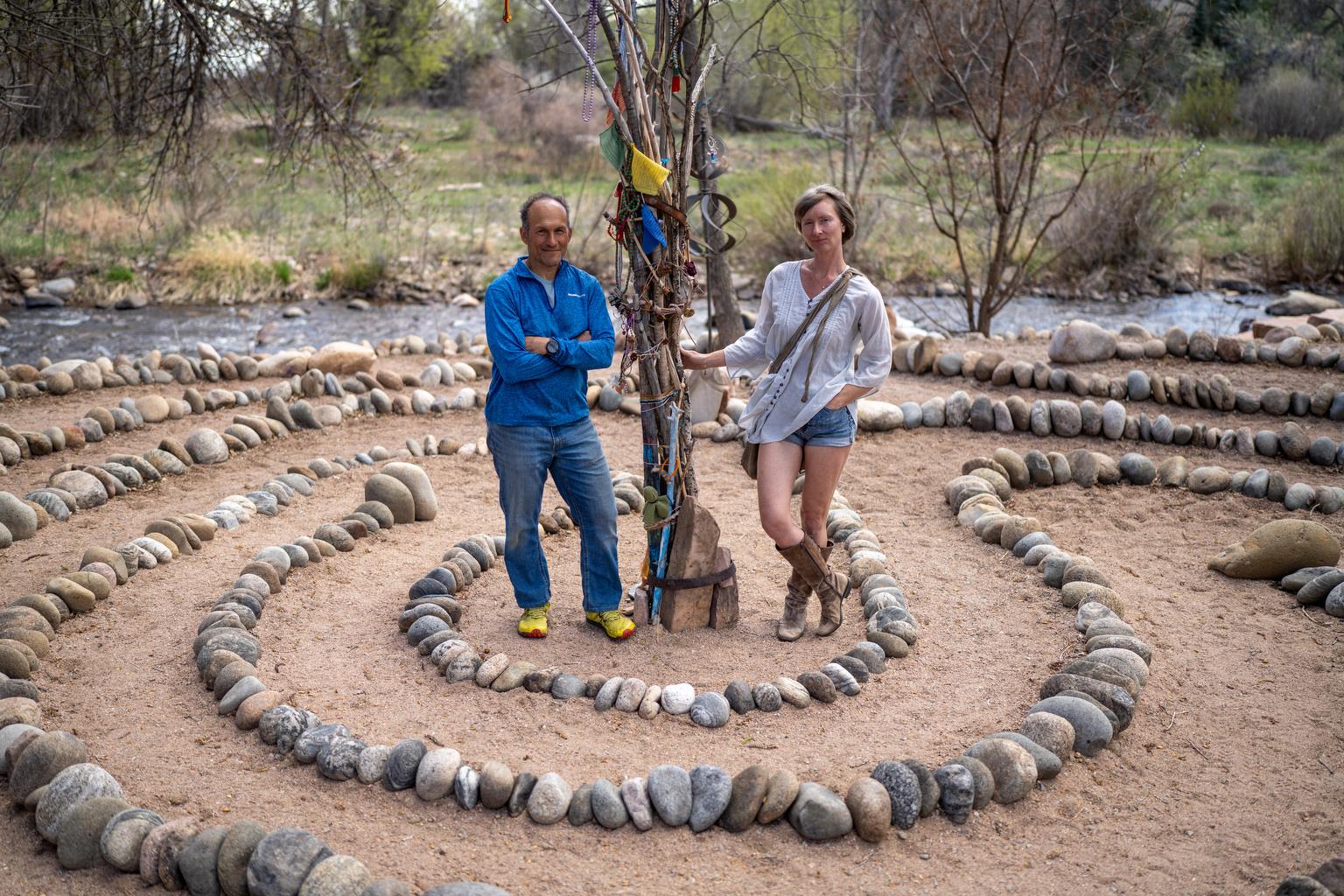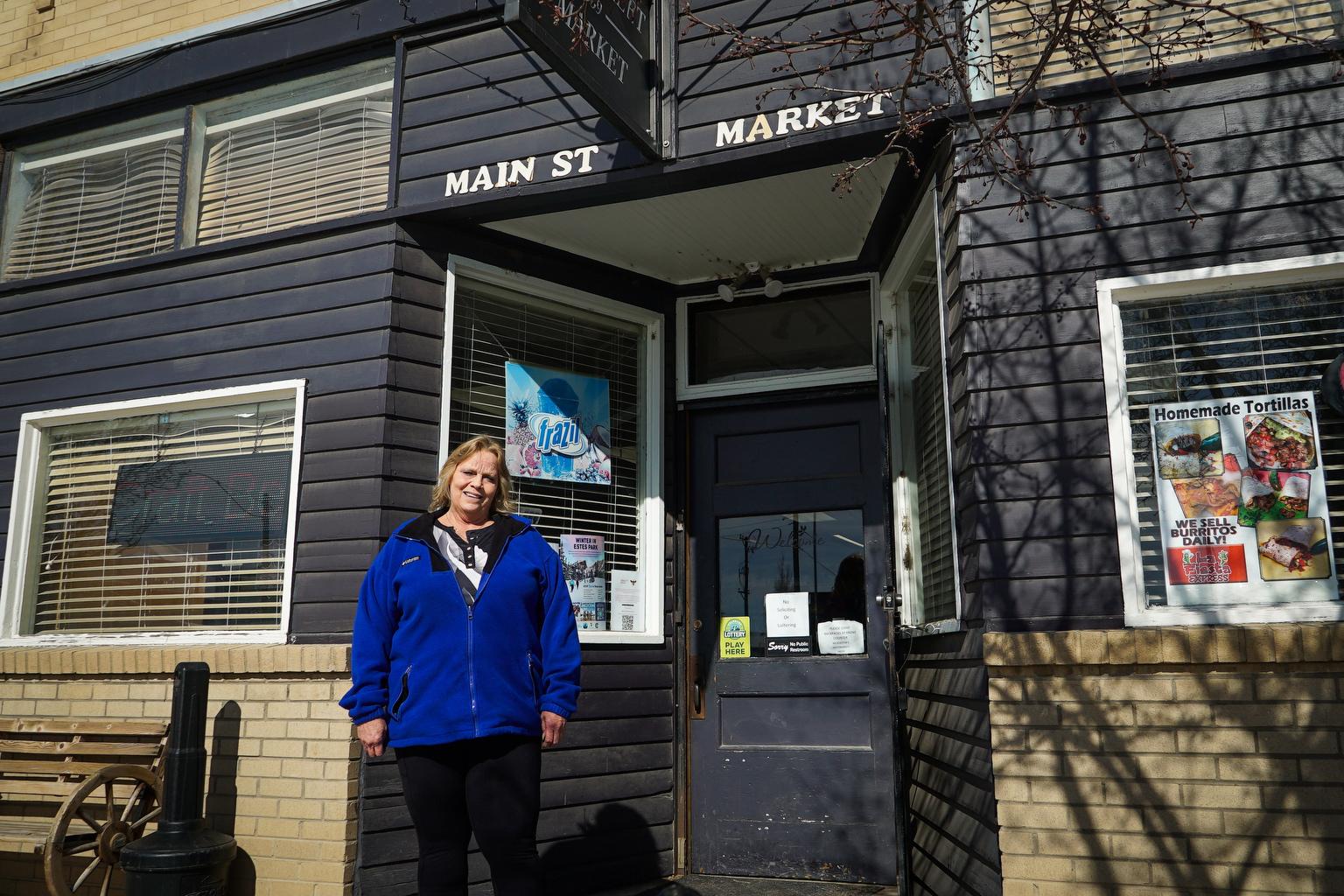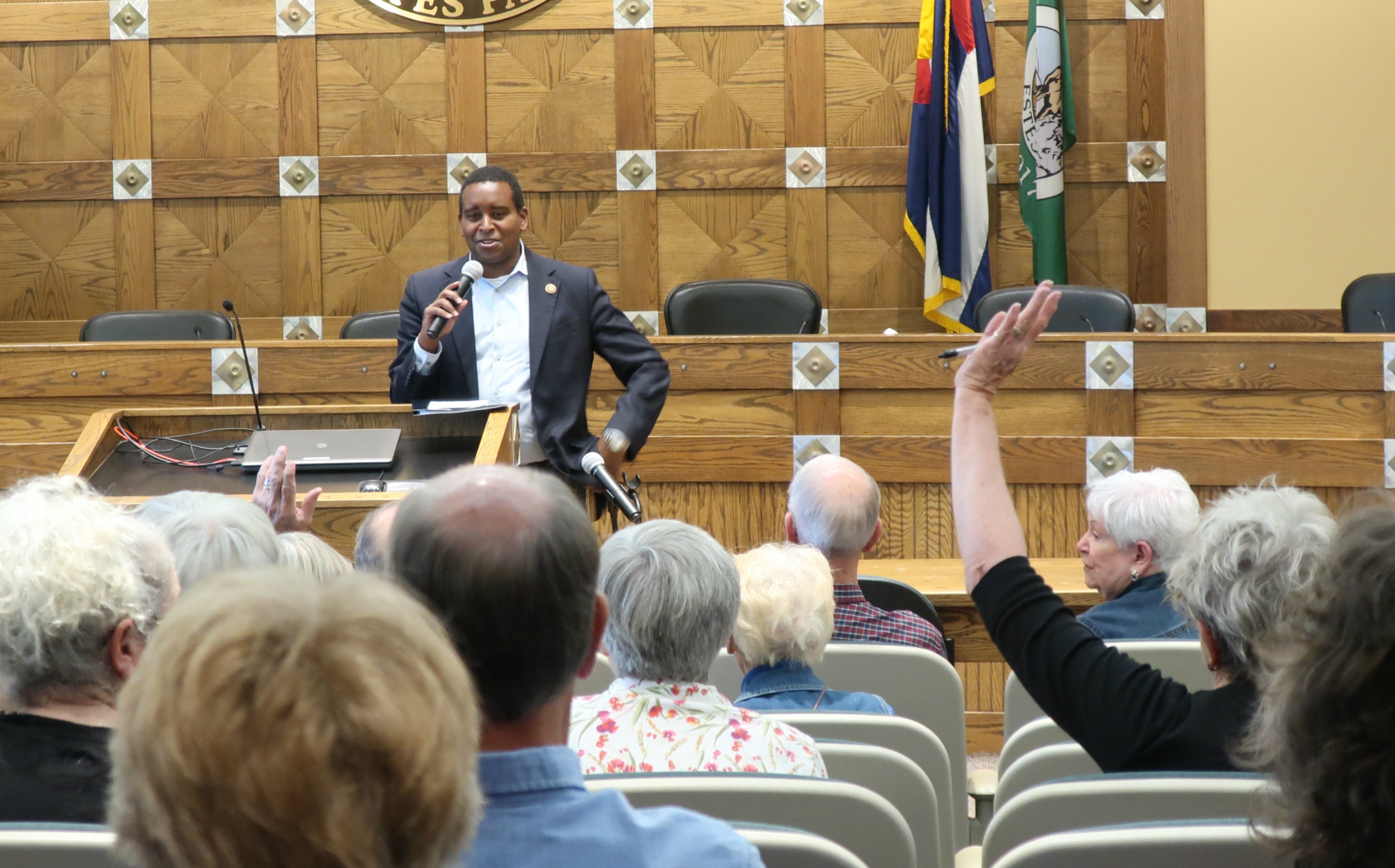
Democratic Rep. Joe Neguse decided early on that town halls would be the cornerstone of his service.
On a Monday at noon in Estes Park, he’s standing in front of a crowd of about 70 people. He fields a range of questions from gun control and health care to climate change and executive orders.
This is your parents’ town hall.
Neguse said he wants to hear from a broad spectrum of Coloradans. And to do that, he’s also rethinking the paradigm of the town hall — a not-your-parents’ town hall. He wants to structure events for everyone: evening, daytime, maybe even a bipartisan town hall with a Republican colleague. He’s had success with his Service Town Hall initiative, where people volunteer for an hour and then regroup for discussion.
“Combining service with a town hall has proven really effective at also turning down the temperature,” he said. “And I think the more we can turn down the temp of our politics, the more it enables us to listen to each other, which I think we can all use a lot more of right now.”
Estes Park resident Richard Mulhern agrees. He’s a registered Republican and took part in a service town hall where they planted seeds. It made for a relaxed atmosphere. More importantly, he said it gave people facetime with their elected representative.
“You feel like you really know them. And that means a lot,” Mulhern said.
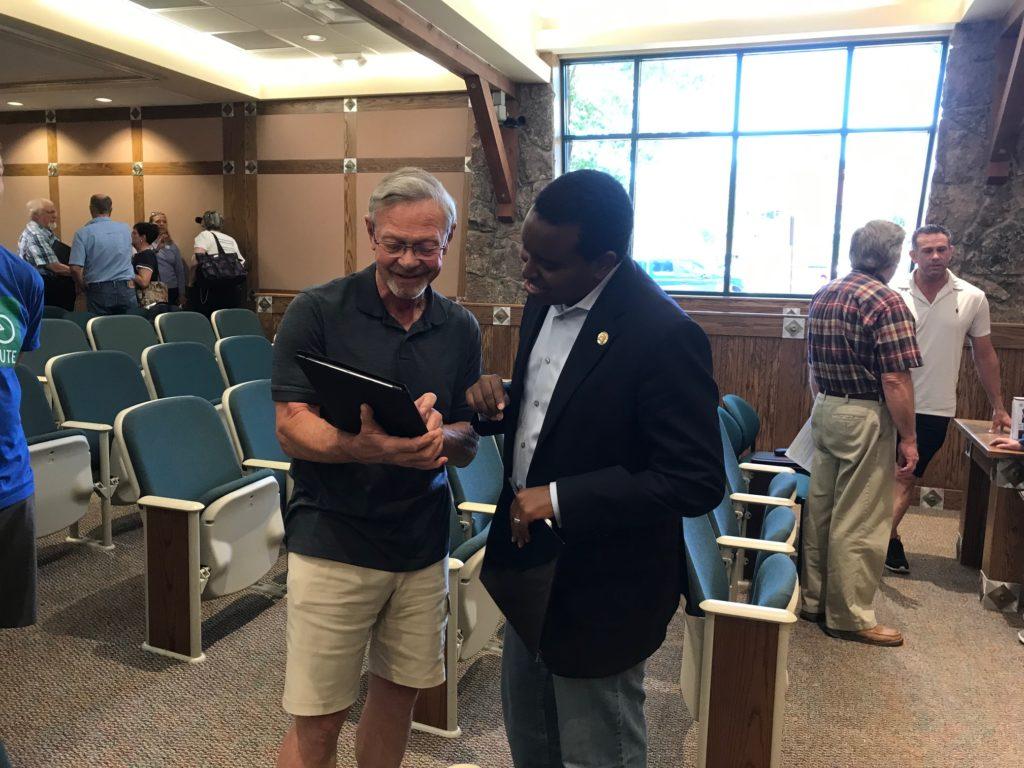
For his part, Neguse clearly likes engaging with the crowd.
“I get such great ideas, and suggestions and feedback from these town halls that it enables me to do my job better,” he said.
Neguse is not alone in rethinking town halls and retail politics. With social media, there are more ways a member of Congress can connect with voters.
On the same day 70 miles south, Democratic Rep. Jason Crow is at Stanley Marketplace in Aurora for a Crow On Your Corner event. The former factory that manufactured ejection seats for military aircraft is now a home for hipster shops, restaurants and community space.
Nothing really beats getting to talk face to face. The way Crow sees it, you need to meet people where they are because they won’t always come to a town hall.
“Unless you make the effort to do different types of formats in different places and extend out beyond the traditional town hall format, I think there are things you’re not going to learn, hear from the people in the community,” he said.
Another Democrat, Rep. Ed Perlmutter, is also mixing up his approach with a mish-mash of old and new – telephone town halls or meeting voters on their morning commute by riding the rails with them or outside the local supermarket
But Estes Park resident Lisa Hutchins thinks politicians should hold town halls, although she understands why they are reluctant.
“I think they’re necessary, but I also realize it’s kind of a firing line for the representatives, which I’m sorry about,” she said.
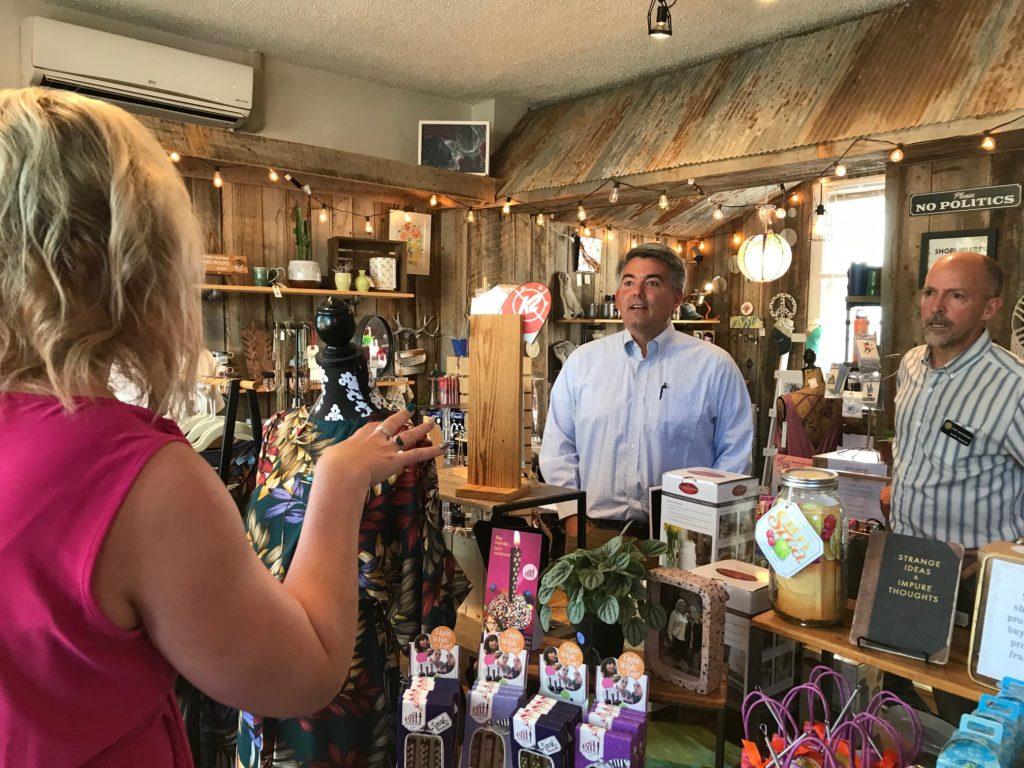
The Colorado congressman most on the firing line right now is Republican Sen. Cory Gardner. He faces a tough re-election next year. So he's out meeting with voters during this August recess but not as publicly as many would like.
In the rural northern Colorado town of Wellington, Gardner shakes hands as he goes in and out of businesses along the main drag. It’s part of his Main Street Walking Tour program. His plan for outreach is to get to as many places as he can.
“It’s about getting into every nook and cranny of the state,” he said.
But his engagements are curated and not widely publicized. And this perceived lack of accessibility has Democratic activists dogging his every step. They released a public schedule of a Cardboard Cory that voters can walk up to and ask questions.
Like a practiced politician, Gardner laughs it off, saying his cardboard doppelganger is “better looking than me and taller.”
It's been nearly two years since Gardner held a traditional town hall. Instead, he points to economic development meetings, mental health meetings, veterans roundtables, telephone town halls and his walking tours as public events where he meets and takes questions from constituents, even if it’s not a town hall format.
“We just did one in Fort Morgan not too long ago, we just had an open event in Eagle County, so if people don’t like the label of our public events, I can’t do much about that,” he said.
Up and down the street, business owners of different political stripes are glad he stopped in, even if they don't agree with him or necessarily understand why he's there. At the end of the walking tour, Gardner meets with many of them, as well as community leaders, at a local tavern – where he talks legislative priorities and fields questions from a crowd of about two dozen.
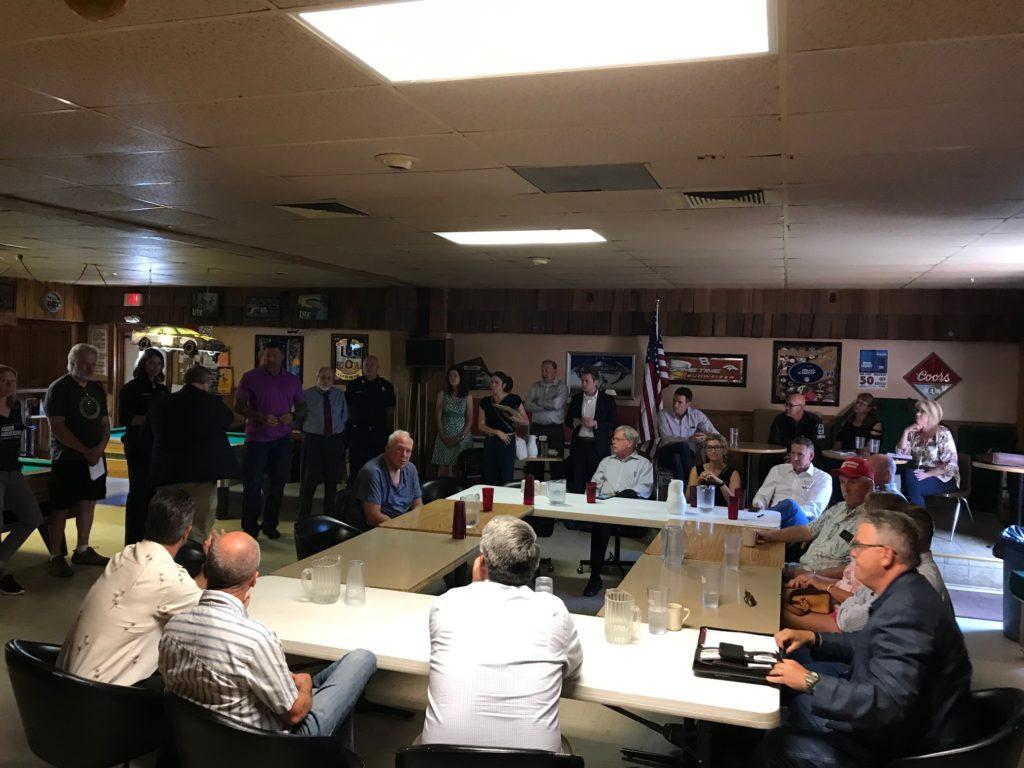
Gail Meisner, who’s retired but active with the Farmers Union, shows up with her boyfriend who wears a Make America Great Again cap. She liked the event, where she asked about trade and tariffs.
“This was great. Glad to see so many people show up,” she said.
But even she notes the lack of advance notice.
“I didn’t find out until an hour ago. So, it was kind of sudden. It’s like OK, you know. It would have been better if people would have had a little more notice. I think we’d have gotten more people here.”
That's because Meisner believes everyone should have an opportunity to talk to — and question — their elected representative. Town hall or no town hall.

